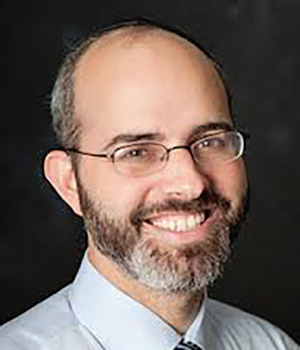
May these words of Torah serve as a merit le’iluy nishmat Menachem Mendel ben Harav Yoel David Balk, a”h, on the occasion of his second yahrtzeit.
This week we learned Shavuot 39. These are some highlights.
Shavuot 39: Should you spend money to avoid swearing truthfully?
Our daf discusses the oath imposed by a court. If a man demanded from his friend at least two ma’ah of silver and a peruta, and the man he demanded from admitted to owing the peruta and denied owing the two ma’ah, the court imposes an oath on the man who admitted to part of the claim and denied the rest of the claim. This nitva must swear that he does not owe the two silver ma’ah. Our daf teaches about this oath. Before the nitva swears, the court tries to intimidate him. They warn him that the entire world shook when the Almighty declared, “Do not bear My name (in an oath) in vain.” When the man insists on swearing, the court declares that all should move away from these litigants, for being close to them is like being near the tents of the wicked. What is the moral ideal in a case of an oath obligation? Should a man pay to avoid swearing truthfully? Are all oaths problematic?
Shu”t Chatam Sofer and Sefer Chasidim both argue that all oaths are problematic. They feel a man should lose money to avoid taking a truthful oath. In Sefer Chasidim (Siman 418) he discusses a Jew who owed an oath to a gentile. The Jew declared, “If I swear truthfully and get my money from him, I will give half of it to charity.” The sage told him, “Even if the truthful oath would get you to give all of it to charity and to add from your own funds to charity, you would still be better off not swearing at all. Many cities have been destroyed because of truthful oaths.” Shu”t Chatam Sofer quotes the midrashic source that cities were lost because of truthful oaths.
Shu”t Chatam Sofer (Choshen Mishpat Siman 90) asks, “How do we know that all oaths are bad? What is the source that even when you will swear truthfully, you are better off not swearing at all?” Chatam Sofer answers that one source is a midrash. Midrash Rabbah (Matot Parsha 22) teaches that King Yanai had 2,000 cities. They were all destroyed for the sin of truthful oaths. Another source is our daf. Our gemara explains a verse in Zechariah (5:4). The verse declares that an oath will go out right away to the house of the thief and to the home of the one who swears falsely, and the oath will reside in the home, destroy him and destroy the wood and stones of the house. Our gemara explains that the verse refers to the person who swears falsely and to a man who makes a false claim on a friend and thereby forces the friend to swear. The oaths become curses that go to the homes and destroy them. Asks Chatam Sofer: it is understandable why a man who swears falsely deserves a terrible punishment, but why does the verse also give this punishment to a man who makes a false claim? The victim of his claim can simply swear to the truth and he will not have to pay anything. What is so terrible about creating an oath obligation? Chatam Sofer feels that this gemara is proof to his contention that even a true oath is problematic. Causing people to swear, even when they will swear honestly, is a terrible sin deserving of severe punishment. Chatam Sofer adds that this is also the explanation of why the court would declare about the litigants, “About you it was said, ‘Stay away from the tents of the wicked.’” If the man is swearing falsely, we understand why he and the man he is arguing with are both called wicked. He is wicked for swearing falsely. The man who made the claim against him is wicked for having chosen a business partner who is flippant about respecting Hashem’s name and oaths. A person should not lend money or deposit money with someone who would be willing to swear falsely. But, if the watchman is swearing truthfully, why would the court say about him and his partner, “Stay away from the tents of the wicked?” The man who made the false claim was wicked, but the victim of his claim is seemingly innocent and righteous! Chatam Sofer proves from here that even an honest oath is a sin. Therefore, it is correct for the court to refer to the two of them as the tents of the wicked. According to Chatam Sofer, a man should accept financial losses to avoid swearing truthfully.
Shu”t Minchat Yitzchak (Chelek Dalet Siman 52) finds this discussion of the Chatam Sofer surprising. Chatam Sofer never mentioned that earlier authorities already discussed the issue. Rambam (Sefer Hamitzvot Mitzvat Asei 7) writes that there is a positive mitzvah to swear truthfully. Just as there is a prohibition against swearing falsely, there is a positive mitzvah to swear truthfully in those cases in which Hashem has imposed an oath obligation on the person. Ramban disagrees. Ramban feels that there is never a mitzvah to swear. All oaths are discouraged. Hashem merely allows for a person who is righteous to swear truthfully.
In conclusion, according to Ramban, Sefer Chasidim and Chatam Sofer it is ideal not to swear, and perhaps you should even pay money just to avoid taking a truthful oath. According to Rambam, you certainly should not pay money when you know you are right and there is an oath obligation. According to Rambam, you should swear truthfully and fulfill the mitzvah of truthful swearing.
By Rabbi Zev Reichman
(Chashukei Chemed)
Rabbi Zev Reichman teaches Daf Yomi in his shul, East Hill Synagogue.













